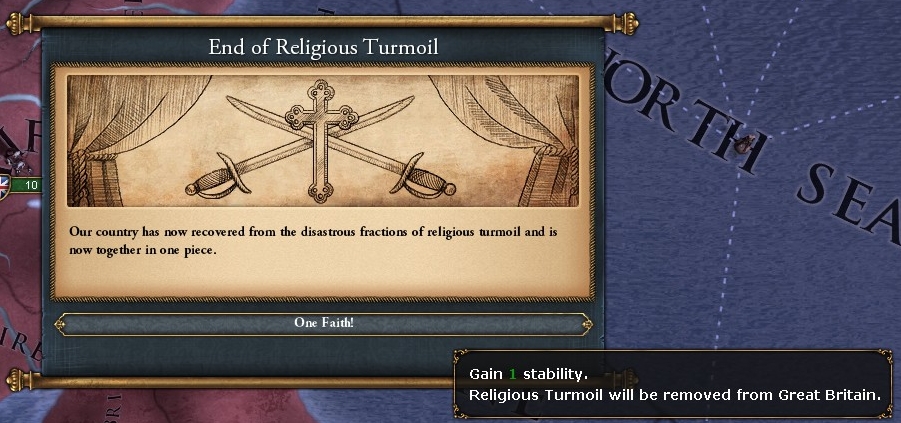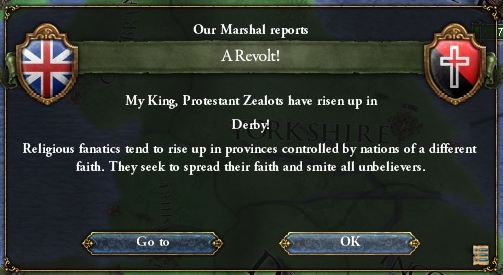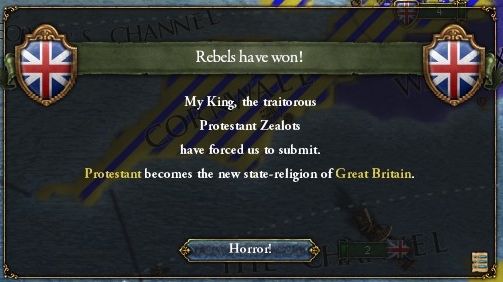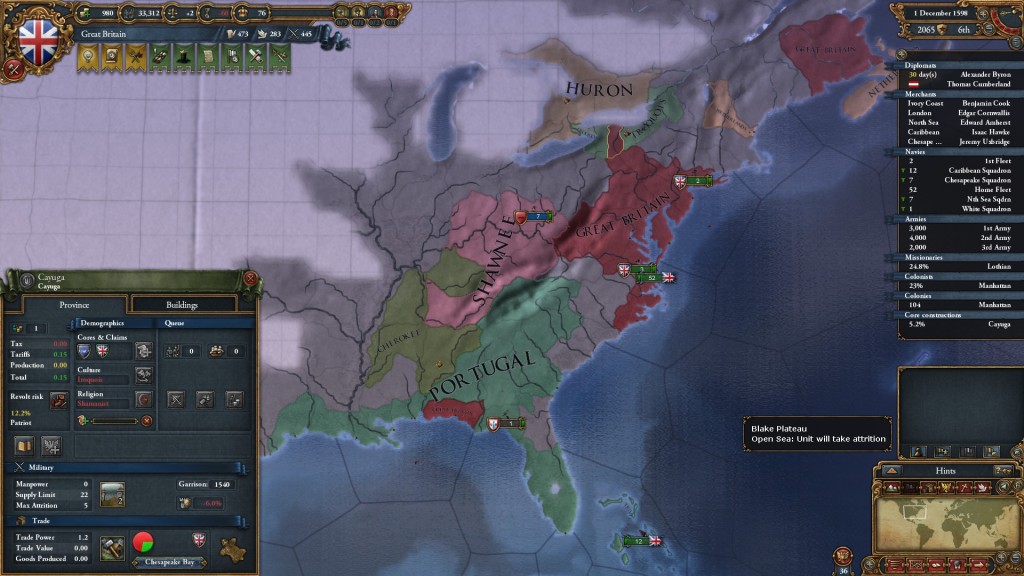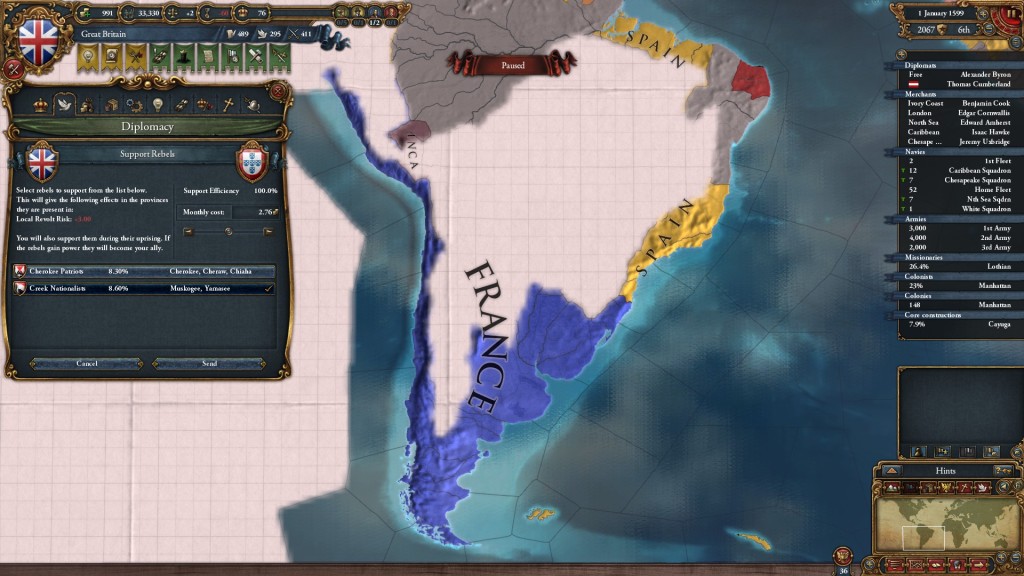- Trade, trade, glorious trade! First gameplay video of Europa Universalis IV highlights new trade system
- Europa Universalis IV Q&A, with Thomas Johansson
- The World that May Have Been, a Europa Universalis IV Let’s Play — Part 1: Never Pick on Someone Your Own Size
- The World that May Have Been, a Europa Universalis IV Let’s Play — Part 2: The Best of Times, the Worst of Times
- The World that May Have Been, a Europa Universalis IV Let’s Play — Part 3: If You Can’t Beat Them…
- The World That May Have Been, a Europa Universalis IV Let’s Play – Part 4: The Death and Rebirth of the British Empire
- The World That May Have Been, a Europa Universalis IV Let’s Play – Part 5 (FINAL): Bend with the Wind
- Europa Universalis IV: The Verdict
- Ayutthaya Universalis: Building an Empire in Southeast Asia
- The Qing in the North: Reflections on Europa Universalis IV: Art of War
- Let’s Play EU4: Common Sense! Part 1: Welcome to Meiguo
- Let’s Play EU4: Common Sense! Pt 2: East Meets West
In 1584, under siege by French-backed Catholic rebels, King Augustus I of Great Britain renounced the Protestant faith. It was a last resort; the British treasury was empty, the army shattered, the realm ruined – and the rebels endless. One could almost hear the cackles in Paris as Augustus put his signature to the document reinstating Catholicism as the state religion of Britain; it was the greatest humiliation a British monarch had suffered since the Hundred Years’ War. Well satisfied, the Catholic rebels went home. The British Wars of Religion had come to an end.
Or had they?
Compared to the 40,000-strong Catholic armies that had previously risen up, the 4,000 Protestants of Darby were a joke. But they were a joke that the king’s soldiers seemed determined to ignore. Even as the Protestant rebels paraded through London, the British army was an ocean away, staring down natives in North America. The Protestants were able to impose their will on the kingdom:
This time, the Catholics of the realm stayed quiet. In the end, it was King Augustus, shrugging his shoulders and pleading force majeure from his camp near Chesapeake Bay, who had the last laugh.
Augustus died just a few years later, with little chance to savour his victory; wags and political enemies alike could not help but notice the timing. But his pragmatic solution paved the way for his son Octavius I to inherit a Britain free of civil strife. Plunder from a campaign against the fabulously wealthy Iroquois partly replenished the king’s depleted coffers; and it seemed he would need every penny. For two generations, Britain’s maritime strategy – colonisation of the Americas, support for overseas trade, naval dominance – had languished. Every soldier, and every gold ducat, had gone straight into the Wars of Religion. Now Britain turned her gaze back overseas, and she found that France, Portugal – no longer an ally – and the new Dutch republic had taken advantage of her neglect.
The 1500s had begun in optimism and discovery, and degenerated into sectarian slaughter. What would the next century offer?
(Well, I dealt with the religious rebels in a rather game-y way, but given the absurdity of the endless rebel hordes, I think that was justified! Plundering the Iroquois was another exploit – at the moment, small non-European countries often pile up ridiculous amounts of gold, as they have almost nothing to spend it on – but the gold will help me pay back the rebel-induced debt. I’m roleplaying it as an alternate history in which the Iroquois amassed Mesoamerican levels of treasure. In any case, the fun has been restored, and hopefully this playthrough will return to business as usual!)
This Let’s Play is based on a review copy supplied by publisher Paradox Interactive.
Discover more from Matchsticks for my Eyes
Subscribe to get the latest posts sent to your email.
